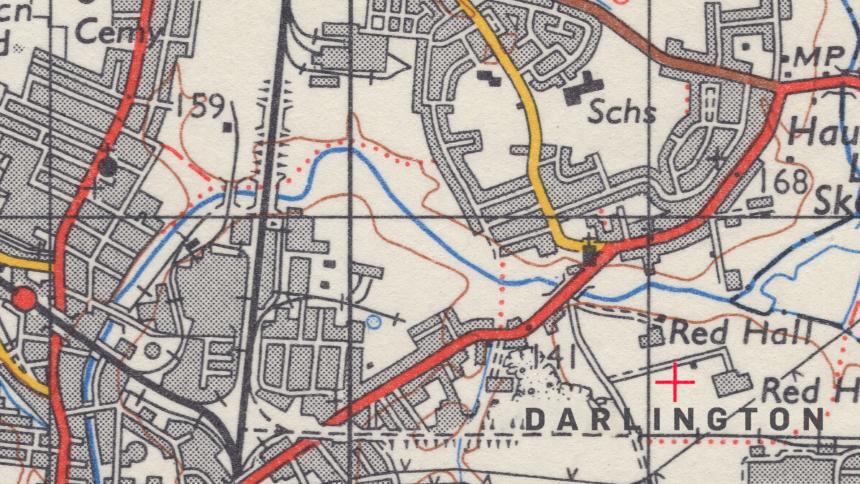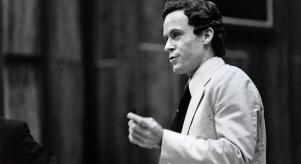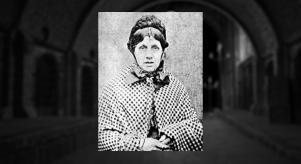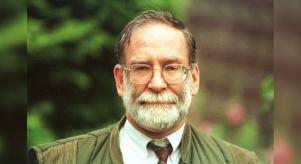
Darlington: crime profile
Katherine Kelly, no stranger to fictitious crimes in shows like Happy Valley and Cheat, once again crosses into the realm of real-life killings with series two of Murdertown. She looks into cases from across the country, with each episode featuring penetrating interviews with journalists, detectives and those personally affected by the shocking crimes.
And they don’t come much more shocking than the acts perpetrated by David Harker, a charming, intelligent young man whose Jekyll-and-Hyde duality would lead him to an unspeakable murder in Darlington in 1998. Harker’s crime was like something out of a horror film, and the tragic fallout would see yet another person slain.
While David Harker is perhaps the most depraved murderer ever to emerge from Darlington, there’s a grotesque runner-up in the shape of Peter Chapman, the sex offender who became notorious for using social media to lure his victim to her death.
The Facebook killer
When 17-year-old Darlington student Ashleigh Hall saw the Facebook profile of a handsome, bare-chested lad named Peter Cartwright, she was smitten. And she was clearly excited to strike up an online friendship with the good-looking boy, who called himself ‘DJ Pete’ and liked to chat with her via MSN.
One fateful day in October 2009, Ashleigh told her mum she was off to stay at a friend’s house. In fact, she was heading for what she thought was a romantic rendezvous with DJ Pete. But the person waiting for her was Peter Chapman, a convicted rapist in his 30s who’d already done tie for assaulting two sex workers at knifepoint. He kidnapped, raped and murdered Ashleigh, but was thankfully caged soon after that as he was already being pursued by the police for breaking the terms of the sex offenders’ register.
It chillingly transpired the ‘DJ Pete’ Facebook profile had garnered interest from thousands of young girls, and that Chapman also planted fake profiles on numerous other social media sites. The case highlighted early fears about the rise of social media and how the new platforms could be exploited by ruthless perverts and sadists. In response, Facebook put out an official statement reminding users to make use of the privacy settings and report suspicious users.
Violence amid deprivation
In stark contrast to the twisted, sexually-charged murders carried out by David Harker and Peter Chapman, other killings in Darlington have occurred in the context of deprivation and disenfranchisement. Back in 2007, feminist campaigner Julie Bindel, who hails from Darlington, reported on how an old school friend named Kevin Ashdown had been locked up for brutally killing his partner after finding her in another man’s bed.
In the piece she wrote for The Guardian, Bindel chronicled how conflicted she felt about Ashdown. On the one hand, he had committed the kind of domestic violence she abhorred and campaigned against. On the other, she felt shamed by how she had risen to join the ‘privileged middle classes’ after leaving behind a part of Darlington known for its failing schools and National Front recruitment. Ashdown, by contrast, had fallen down a rabbit hole of alcoholism and rage, having been abused himself as a boy by his stepfather.
Bindel’s article states that Ashdown’s victim, Sharon McShane, was the third woman to die from spousal abuse in Darlington in one month alone. But how much should the socioeconomic context be taken into account when it comes to domestic violence and murder? Julie Bindel acknowledges the savagery and inherent misogyny of Ashdown’s crime, while also saying ‘I have little doubt that McShane would still be alive today had Ashdown been raised as a child, not a punchbag.’
In that 2007 article, Bindel provided the tragic, telling fact that at least five other men from Branksome (the area of Darlington where Bindel and Ashdown grew up) were serving life sentences in prison. Added to that list in 2014 was 29-year-old Daniel Dodsworth, who bashed his friend Alan Youngson to death with a hammer after a night of drinking cider together.
Police overheard Dodsworth telling a friend that he’d killed his friend for spilling a drink on his carpet, which says much about the instinctive, senseless, booze-fuelled nature of the killing. In this respect, some may regard killers like Dodsworth and Ashdown as the doomed and misguided spawn of their surroundings, while others will regard them as monsters undeserving of empathy or pity.
Gentleman John
One of the most unusual crimes in the history of Darlington took place long, long before contemporary debates about anti-social behaviour and deprivation. The year was 1869, and the location was a pub in the Albert Hill area of town. It was here that local worker Philip Trainer was shot in the eye at point-blank range, in full view of a crowd of fellow drinkers.
‘Darlington has just been startled into horror and indignation by the commission of a crime,’ the local newspaper reported. Despite the potential eyewitnesses, only one onlooker provided an official testimony, fingering a certain John McConville for the crime. Known as ‘Gentleman John’ because of pleasant and placid temperament, he had no apparent reason to have done the deed.
However, the fact that both he and the dead man were Irish triggered fears of sectarian violence being brought to the streets of Darlington. Many Irish immigrants had moved to the area to work in the local ironworks, and dark rumours of ‘Fenian troubles’ were swirling.
Gentleman John’s barrister refused to feed these xenophobic suspicions, mounting a passionate defence that emphasised the lack of motive and lambasted the prosecution for trying to send John, ‘vigorous and healthy, with a fair reputation, to the scaffold to die’.
But that’s exactly what did happen. Gentleman John would find himself walking directly past his own freshly-dug grave on the way to the gallows where, in the words of a local reporter, he was ‘launched into eternity’.




